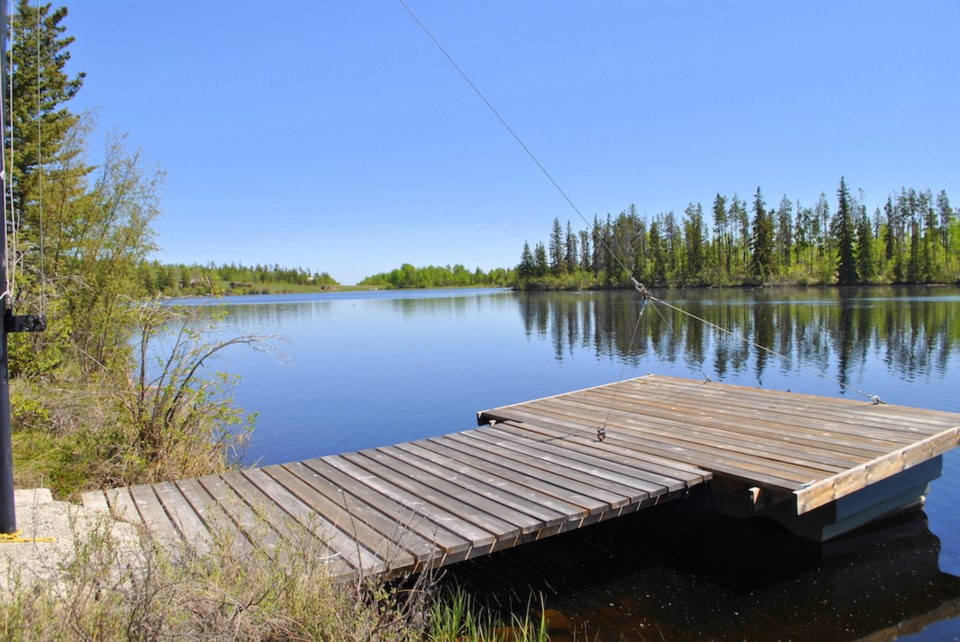Freddie Marks is a specialist in B.C rural recreational property but his phones have lit up with calls from the big city since the pandemic brought on self-isolation and social distancing.
“Before COVID-10 we had an average of two to four inquires for rural property per day,” said Marks, an agent with 3A Group, Sutton Showplace Realty in Agassiz. “Now we have 12 to 15 inquiries per day.”
Marks added that his office wrote deals on remote land listings even during the peak of the pandemic curve.
The virus curve has begun to flatten, but the demand for rural properties is expected to swell.
“Urban citizens are at a disadvantage when it comes to being able to stay socially distant and continue to remain active outdoors away from others,” Marks noted. “Many fled to their cabins and secondary residences away from the city, to wait out the lock down, even though they were being asked to stay away from small rural communities with limited services.”
From Canmore in the Alberta Rockies to the Sunshine Coast and Gulf Islands near B.C.’s Lower Mainland, rural communities have been inundated with visitors during COVID-19.
“Many lakeside communities in the Cariboo are reporting arrivals of summer residents who believe it is their right to travel to isolate, no matter what the provincial government recommends,” Marks said.
The search for rural retreats is not restricted to Western Canada. It has been experienced around the world.
In an interview with CNBC, Glen Kelvin, CEO of Redfin, a major U.S. real estate brokerage, said demand for homes has shifted to rural areas as people react to the coronavirus pandemic and look to move out of dense urban areas.
“We have seen that people are more interested in that house at the foot of the mountains, by the lake,” Kelman said. “Rural demand is much stronger right now than urban demand, and that’s a flip from where it’s been for the longest time, where everybody wanted to live in the city. We’ll see how it comes out, but there seems to be a profound, psychological change among consumers.”
Marks has seen the change first-hand.
“Suddenly that friend who lives off grid on 20 acres and grows his own vegetables doesn’t seem so crazy,” Marks said.
Marks even has such a listing: a 1,020-square foot lakefront cabin in the Chilcotin region, on a half-acre and off the grid but with a generator in place. The price is $129,900 and includes all equipment, furniture and tools.
“The bottom line is, for some, what used to be appealing about living in the city, its crowds, culture and public events, no longer count as pros but as cons.”
Going rural sustainable doesn’t mean you need to have a huge acreage, Marks added.
“Even a half-acre of land gives you enough room for a home, a shop, a large garden and room to play. There are countless rural subdivisions across the province with half-acre to five-acre lots. Some large rural subdivisions, that have over 100 lots like the 108 Mile Ranch in the Cariboo region, offer natural gas, a community water system and even have garbage pick up,” he noted.
An hour’s drive east from B.C.’s Interlakes area, the Deka Lake Subdivision offers lot choices from five to 10 acres with mountain views, lake views and waterfront lots with road access, and hydro to the lot lines.
Rudy Nielsen, president of Niho Land and & Cattle Country, and a real estate agent who has marketed rural B.C. land for decades, is not surprised that the pandemic has triggered an interest in out-of-city living.
In a 1964 speech in Vancouver, Nielsen forecast that, “something will happen in the future like a depression and we will see people moving from the big cities to the smaller towns where the cost of living, and most importantly, the stress is lower.”
Rural land has always been a safety factor for some people, Nielsen noted.



